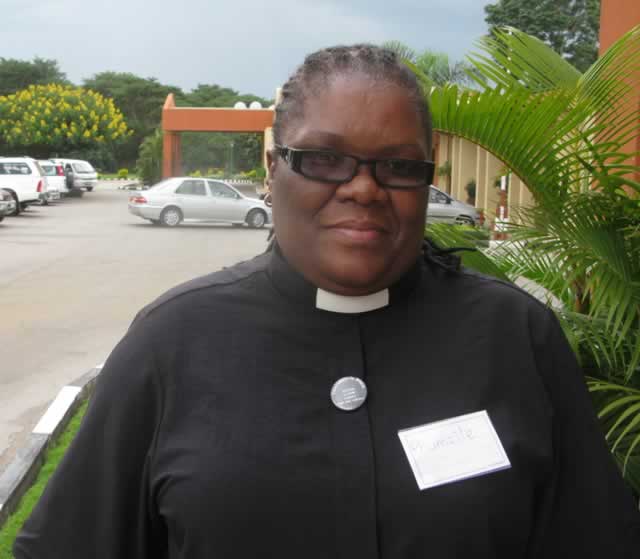Benefits of breastfeeding
Zimbabwe’s population stands at 12 million and of this, 1,2 million are living with HIV.
In a survey, ZDSH 2010/2011, it was shown that 90 percent of pregnant women book for ante-natal clinic. Of the booked ANC 66 percent were delivered by a skilled health attendant.
There is a global plan to eliminate new HIV infections among children by 2015 and keeping their mothers alive and Zimbabwe ascribes to it.
Mrs Rutendo Chapupika spoke of a missed opportunity to save her baby through the prevention of mother to child transmission of HIV. She spoke to me on the sidelines of a candlelight memorial for all loved ones who died due to Aids-related illnesses held by Zimbabwe Network of People Living with HIV held in Mbare last month.
She had registered for ante-natal clinic in Mufakose in 2010 and went through HIV counselling and testing. To her it was just a routine, she never imagined that she would be found to be HIV positive.
“In 2010 sometime in March I registered at the local polyclinic for ante-natal clinic. We were taught of the benefits of the prevention from mother to child of HIV and saw no harm in going through the exercise,” she said.
“To me it was just a routine I had three other school-going children so I thought I was safe from HIV infection,” said Mrs Chapupika.
“However, the results turned out to be a nightmare, I tested HIV positive. Despite the pre-test counselling and post-test counselling sessions I found it hard to believe,” she added.
Mrs Chapupika said after the diagnosis she stopped attending ANC.
“I just stopped attending ante-natal classes. I was mad at my husband. He had betrayed me so there was no way I could go ahead. He wanted me to die so I was ready to die,” she said.
Mrs Chapupika later gave birth at home with the assistance of a traditional birth attendant.
“I went to my parents’ rural home where I gave birth with the help of a traditional birth attendant. I stayed with my parents for a year and came back to Mufakose when my baby was walking,” she said.
Mrs Chapupika regrets the missed opportunity of PMTCT as her baby got sick before turning two years.
“My baby got pneumonia and was admitted at Harare Hospital. The doctor asked me to take an HIV test and I behaved like someone who did not even know her status. I pretended to be in shock when the results came out but the truth is I was not. Baby was tested and found to be HIV positive too,” she said.
She said doctors tried in vain to save her baby.
“It was so sad to see my little baby with a drip passing through the head. Doctors really tried and told me that I should have gone through the PMTCT services. We lost the baby and from that day, it dawned on me that I had to accept reality and live.
I cost my baby’s life due to denial and anger and today I work with our local support group. I visit the clinics where I encourage pregnant mothers not to go AWOL irrespective of one’s status,” she said.
Dr Angela Mushavi, National PMTCT and Paediatric HIV Care and Treatment Co-ordinator in the Ministry of Health and Child Welfare, said women diagnosed with HIV and found to be eligible for ART should be started on the life-saving medicines immediately.
“Common medicines used in pregnancy in Zimbabwe are lamuvidine, zidovudin, tenofovir and nevirapine.
“When the woman has a low CD4 count or is unwell, benefits of treatment outweigh any potential risk to the foetus and treatment should be commenced even in first 3 months of pregnancy,” said Dr Mushavi.
“The mother is given AZT 12 hourly in ANC (from 14 weeks or any time thereafter) single dose nevirapine at onset of labour, AZT 12 hourly during labour and delivery,” she said.
“The mother is continued on AZT 12 hourly for 7 days postpartum,” she said.
Dr Mushavi said they encouraged the mother to breastfeed exclusively for six months.
The breastfed infant is given nevirapine from birth until one week after cessation of breastfeeding.
Infants who are not breastfeeding only take nevirapine for six weeks only and get tested for HIV.
Dr Mushavi also said that they encouraged mothers to breastfeed adding that extended breastfeeding had benefits for the baby.
“Extended nevirapine reduces mother to child transmission and infant mortality,” she said.
Currently Zimbabwe uses Option A whereby the mother stops taking ARVs after breastfeeding if her CD4 count is above 500.
There are considerations to have the country adopt Option B+ where the mother would take the medication for life.
Dr Mushavi said there were issues of concern with the second option as a mother who felt strong would be likely to default.
“There is a challenge in readiness and willingness to adhere to lifelong ART. There was also the inconvenience of lifelong treatment, cost to the programme, risks of
ART-toxicity, resistance and drug interactions,” she said.
“As a country we support the introduction of appropriate complementary foods from 6 months, and continued breastfeeding to 24 months and beyond,” said Dr Mushavi.
WHO 2010 recommends that breastfeeding can stop at 12 months once a nutritionally adequate and safe diet without breast-milk can be provided.
With HIV positive mothers who were exclusively breastfeeding for the first six months there were challenges noted.
When a mother received HIV negative results of the baby she felt compelled to immediately stop breastfeeding as a measure to protect the baby.
“They were infant feeding counselling challenges especially when HIV DNA PCR results are returned to the family (particularly a negative result, parents felt obliged to stop breastfeeding,” Dr Mushavi said.
One woman I talked to said she stopped breastfeeding the moment the baby’s results came out negative.
“I was so relieved and immediately stopped breastfeeding after the results came out negative at six months. I could not take the risk anymore,” she said.
Zimbabwe is using Option A of the WHO 2010 guidelines. The country will transition to Option B+ later in the year.
Feedback: [email protected]










Comments